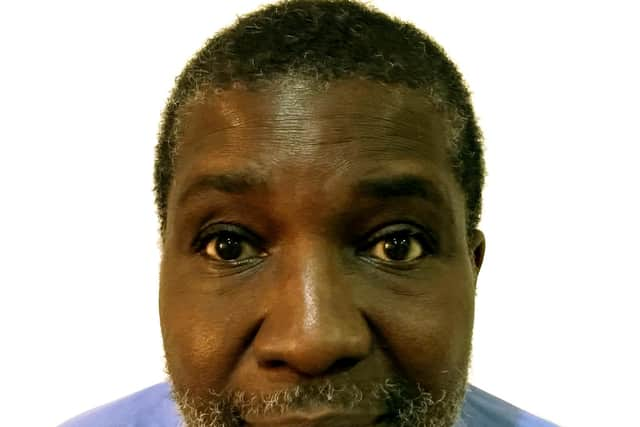Sheffield doctor who suffered stroke while working at Barnsley Hospital sends message of hope
and live on Freeview channel 276
Ade, who is a doctor from Whirlow, Sheffield, noticed a weakness on his left side while in a meeting. Seconds later he slumped in his chair and was unable to move.
But in less than a year, he was back in his job at Barnsley Hospital – and today he said he wanted to share a message of hope with other sufferers.


Advertisement
Hide AdAdvertisement
Hide AdThe 63-year-old professor now says realising despite his stroke, he still felt like himself, was a defining moment of hope where he knew things would get better.
Ade had his stroke in 2015, while working at Barnsley hospital.
Fortunately, his office was directly above the hospital’s A and E and a specialist was able to attend quickly and take Ade for an emergency scan which confirmed a bleed on the brain.
Ade said: “I began having funny feelings on my left side and that side of my face. I remember seeing the Stroke Association’s FAST advert, so I knew I was having a stroke and I was able to tell the doctor’s this as well – they said I had given them the diagnosis!”
Advertisement
Hide AdAdvertisement
Hide AdThe cause of Ade’s stroke was silent hypertension or high blood pressure. He initially spent three months in hospital. Then he had a year of rehabilitation treatments including physio and occupational therapy and electrical stimulation therapy.
Ade said: “It took me 11 months to return to work. It was a very long road. I still have weakness in my left side and now walk with a stick. I have a wheelchair but I’m using that less and less.
“I also went on a three week long intensive therapy programme at University College London doing exercises like practising with cutlery, fastening buttons, and using the treadmill and gym equipment.
“I know I’ve only been able to go back to work because I had a good amount of rehab but others haven’t been so lucky.
Advertisement
Hide AdAdvertisement
Hide Ad“For me, when I began feeling a bit like my old self inside, I was saying ‘he’s still there, I’m still me,’ despite my weakness I think I’m still there. I think that was my moment of hope where I knew I would improve.
“In a way I feel blessed that I was actually in the right place at the right time when I had my stroke. I love being a doctor and looking after people, so I’m so grateful that I’ve been able to return to it and that my cognitive functions are still there too.”
Research published today by The Stroke Association reveals having ‘hope’ is critical to recovery
The research shows the importance and transformative power of feeling hope after having a stroke. Three quarters of those surveyed in the UK (76 per cent) say that hope played an important or critical part in their recovery.
Advertisement
Hide AdAdvertisement
Hide AdThe Stroke Association helps people to find the hope they need to rebuild their lives through specialist services, including a Helpline, peer support service, support groups and Support Coordinators.
The Stroke Association is asking those who can to donate today so that it can reach more stroke survivors and give them the specialist support they need to find hope and move forward with their recovery. Visit stroke.org.uk/hopeafterstroke
